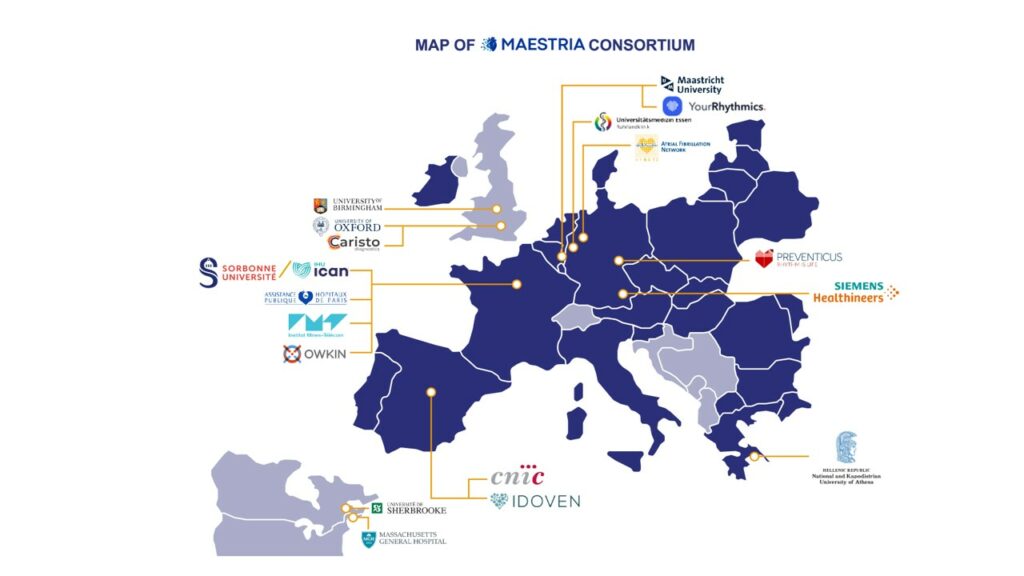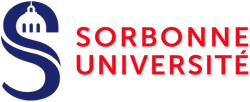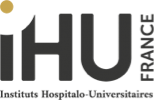MAESTRIA, an ultra-innovative project to better detect atrial cardiomyopathy, the cause of atrial fibrillation and vascular embolic accidents
Atrial fibrillation (AF) is the most common cardiac rhythm disorder. Its incidence and prevalence are rising rapidly, mainly as a result of the ageing of the population. It is estimated thataround 750,000 people in France suffer from atrial fibrillation. The high cost of treatment is estimated at around €2.5 billion a year.
The MAESTRIA project (Machine Learning and Artificial Intelligence for Early Detection of Stroke and Atrial Fibrillation) is a consortium of 18 partners from Europe, the United States and Canada responding to an H2020 call for projects on digital diagnosis.
What is an H2020 call for projects?
Horizon 2020 (2014-2020) is a European Union funding programme for research and innovation . This programme aims to support resolutely interdisciplinary research projects that are likely to respond to major economic and social challenges. It has been succeeded by Horizon Europe (2021-2027).
What are the challenges for the MAESTRIA project?
Atrial fibrillation, a heart rhythm disorder, is the most common cardiac arrhythmia and the leading cardiac cause of stroke. Frequently associated with heart failure, high blood pressure, obesity and diabetes, AF affects around 1% of the general population and up to 8% of people over the age of 80.
The current challenge in the clinical management of atrial fibrillation is to intervene before the arrhythmia occurs, i.e. from the first signs of atrial cardiomyopathy.
Coordinated by Prof Stéphane Hatem, director of the IHU-ICAN and of research unit 1166 at Sorbonne University, the MAESTRIA project aims to develop a new approach for the rapid detection of atrial cardiomyopathy.

All the expertise of the IHU ICAN at the service of MAESTRIA
Over a period of 5 years, this project will call on several areas of expertise within the IHU-ICAN:
- Our Scientific Operations Department (SOS) for setting up and monitoring the project
- Our Legal Department (PJV) for regulatory and ethical aspects
- The IHU-ICAN’s clinical platform and Omics platform for defining the electrophysiological signature of the disease
- The Biological Resource Centre (BRC) for the proper storage of the study’s biological data
- The ICAN Imaging platform, to interpret the imaging and ECG data and identify the most appropriate algorithms for integration into the MAESTRIA demonstrator
The importance of data
By combining imaging data with physiological data (omics, clinical data, etc.) from patients, this platform will be able to identify new therapeutic targets to improve diagnostic accuracy and increase the effectiveness and efficiency of treatments by enabling better prevention of the complications of atrial cardiomyopathy, such as atrial fibrillation and strokes.







